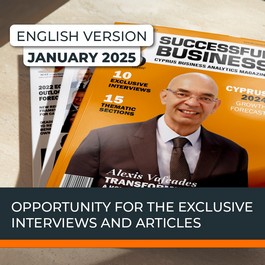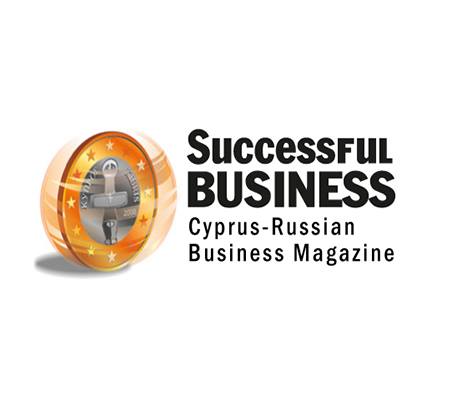Andrei Yarantsau, CEO and co-founder of investment company Steam Power Investments and mobile development studio Pump Games, shared his vision of mobile gaming, secrets of creating profitable products and high-performing teams. He also explained why significant investments are only a part of the projects' success.
Andrei, could you tell us how the idea of creating Steam Power Investments came to you, and what your company specifically does?
It all started after my departure from Melsoft in 2023. Many people expected that when I quit from operations, I will start a venture fund together with my partners, and engage in investment activities. We have enough experience and knowledge for it. However, after some reflection, we chose to focus on the areas where we had previously attained the highest level of proficiency. So, at Steam Power, we operate in a format that is unconventional for the venture industry
How do you differ from traditional investment companies?
The thing is, venture investors in games are often act as private equity funds – before making a bet, they want to see an MVP (minimal viable product) with initial metrics and proven business model. It’s easy to understand them; for a game to become a hit, besides having the best-in-class metrics, it has to be fun to play. And fun-factor in a game cannot be guaranteed by the amount of funding. Otherwise, for example, with Amazon's level of investment in games, it would have already become #1 in the industry. Before a game studio becomes successful, it usually takes years to build a cohesive team and create a special creative atmosphere inside. Some go through this path in 2-3 years, while others find 5 years insufficient.
Moreover, venture capital typically focuses on the most successful projects. However, if a project does not demonstrate expected results, they quickly shift their attention to finding new promising "stars". Thus, some projects and teams in their portfolio are left hanging, lacking something for growth and scaling.
And that's where Steam Power comes in?
Exactly! Classic venture funds often don't have time to dive into the reasons for a project's underperformance. At Steam Power, we, along with the founders, go deep into the details and figure out what isn't working in the product and why. Our strengths are in business process optimization, publishing, live ops, and monetization areas. These skills allowed us to succeed with Melsoft Games in 2015 and Family Island in 2019. Based on this experience, we founded Steam Power in 2023, invested in several projects, and continue actively seeking new opportunities in the market while maintaining constant communication with industry colleagues.
How common are your activities in the game development market?
It's still more of a "boutique" story. We launched in the summer of 2023. During this time, we've reviewed over twenty proposals, including teams with their games and game publishers. Currently, we work full-time with one studio — assisting the team in developing the new mobile game. With a couple of other teams, we have preliminary agreements and once they achieve strong market metrics, we'll join in scaling.
You also have your own mobile development studio, Pump Games, correct?
Yes. Investments are unpredictable, and in mobile gaming, it's crucial to not stand still. Therefore, in 2023, we also founded Pump Games. There, we run our favorite activities: creating own mobile products, experimenting with monetization and testing different hypotheses. This allows the team to stay updated on the latest market trends and adapt to rapidly changing technologies. We pay special attention to the development of our "backend engine" — a set of microservices providing a wide range of functionality out of the box for mobile games: game analytics, user segmentation, offer system, event calendar, A/B testing, and much more.
So, if a team with a game project comes to us, and this project has decent basic metrics but faces difficulties with rapid scaling, we can offer not only our experience and possible funding but also technologies!
Why did you specifically focus on mobile games? For example, at Wargaming, you worked on large PC projects.
Mobile gaming, in my view, is the most transparent and therefore fair market. It is challenging but open to everyone. Any developer, with the help of market analytics, can learn almost everything about any application or game: history of updates, the impact of each update on metrics, and user reviews. By reverse engineering the application and analyzing traffic, one can understand the technologies used and the architecture of the system. Analyzing marketing creatives allows them to understand which competitor's ads work well. If something worked for someone, in 3-6 months, everyone will adopt it.
It's an uncompromising battle: either you experiment a lot, adapt quickly, and earn more than others, or you fall behind. In PC/Console games, there's much less of that. The performance ads and analytics tools are lagging behind the mobile market by many years. PC/Console developers bring more attention to creation of a strong brand that will attract an audience for many years. In mobile games, there's a lot of engineering work, similar to Formula 1: who can better apply modern technologies will win.
What key points would you highlight in creating a successful product?
There's no exact recipe for success, but it's often a combination of several factors – the right choice of market niche, a cohesive team with the right skills, and, of course, a bit of luck. Another key element is the depth of the product. In the modern world, everything happens quickly; people don't have time to read long texts and stories. So, for a great game, it's essential to be able to adapt to different rhythms, give players pleasure from a short gaming session, and at the same time have a deep meta-game to keep an interest for years.
How do you form a team to work on projects?
Choosing the right people for the team is critical for a mission success. In my opinion, you should look for those who can complement the team while preserving their individuality and unique vision, thereby broadening the overall worldview. It's good if you are surrounded by mature individuals who don't panic without you and accept the world with all its imperfections. Ideally, if you share the same values, constantly learn, move forward, be curios, and don't get stuck in the past.
One of the biggest challenges is how to get enough decision-makers with entrepreneurial mindsets in the team. Historically, in the engineering culture, not many people are able to evaluate and select among a wide range of possibilities for solutions that will have the most business impact. Without an entrepreneurial mindset, some colleagues whose decisions affect product quality may struggle to deal with the tension and pressure of other team members. Many teams still need a lot of training and patience during product talks!
You have a very wide range of interests – a scientific degree in physics, involvement in various projects beyond game development, and a family. How do you manage to handle everything and avoid professional burnout?
I can't say that I always manage to avoid it; rather, it's more like a sine wave with ups and downs. I don't always manage everything, sometimes I have to ask for help from family and tell them that I have a busy period ahead, and I need to temporarily devote more attention to work. We find common ground, and that's a tremendous help. I think that's the most essential skill – to be able to negotiate. Not only with your spouse but also with business partners, colleagues, and even with your kids. Explaining the situation helps to adjust expectations and remove misunderstandings.
The key to avoiding burnout is ultimately finding a balance between the roles we naturally play in our families, careers, and general lives. Since loved ones have the biggest influence on our emotional states, I think that finding balance within the family is the most crucial thing to do. While in other aspects of life and work, there is always the opportunity for change and finding new paths.
In conclusion, tell us about your plans and vision for the future of Steam Power and Pump Games.
It's more of a marathon than a sprint for me. I think it's important to run this distance alongside someone who enjoys it. It may not be easy, but it is definitely interesting. In all our companies we are constantly working on the success formula and spreading an entrepreneurial spirit among our colleagues and partners. I am confident that, despite the challenges, we have great potential for growth ahead of us.







